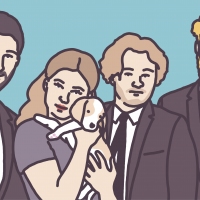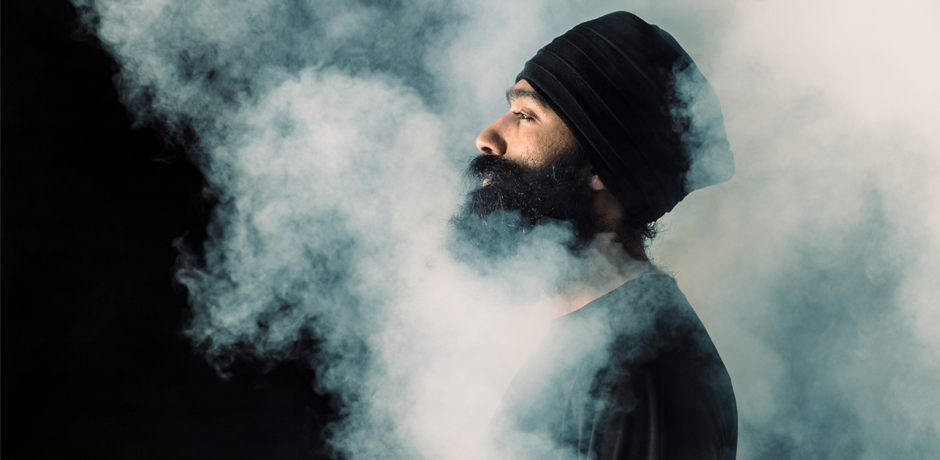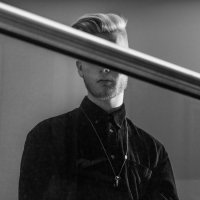 The Current State of San CiscoFrom touring as “grommies” to growing up as a band, we take five with Jordi Davieson.
The Current State of San CiscoFrom touring as “grommies” to growing up as a band, we take five with Jordi Davieson.

The Process of Becoming With L-FRESH The Lion
“Hip hop spoke to a part of me that wasn’t being spoken to.”
“Hip hop was by far the biggest influence in the beginning,” says Sukhdeep Singh, fielding a question about the music that shaped his upbringing. “As a kid, I felt isolated. I really resonated with hip hop music, it spoke to a part of me that wasn’t being spoken to. I always had music around in the form of Sikh music and Punjabi or Hindi music, it was always around the house being played by mum and dad. It was when I got to school that I started to be introduced to Western music. My friends would pass their albums and CDs over, and when I was a teenager, it became hip hop.” Fast-forward to 2016 and Singh is known widely as L-FRESH The Lion, one of Australia’s most promising talents, two days out from the official release of his second album.
BECOME is the eleven-track follow up to Singh’s 2013 debut One, and follows the release of singles Get Mine (feat. Parvyn), Hold Up (feat. Remi) and 1 in 100,000. Each of these made waves across the nation, shining a light on issues often swept under the rug. Themes of systemic racism and resistance appear often, yet they don’t singularly define him. In a nation that seems intent on painting people of colour as laden and in constant struggle, Singh is wary of being represented solely through his work confronting it. “I don’t want to be boxed in as the dude who always talks about racism because I’m more than that, and the reason why I talk about racism is it’s hard not to acknowledge the fact that so much of Australia is about politics, power and race,” he says. “This country was built for certain people to succeed … with media and the entertainment industry, I have to be conscious of the fact that media establishments were not built with someone like me in mind.”
There’s a genuine optimism to his music that surfaces through the way these issues are tackled head-on; a true catharsis, where most dialogue might offer a bandaid. “In making 1 in 100,000, it comes from a space of ‘well let me identify what my strengths are, and let me tell you about them in the face of being characterised as a minority, and in the face of the odds being stacked against you’. The concept of 1 in 100,000 for me, my community, the Sikh community, we’ve always been a minority ... but in spite of that; we’re going to set the standard for what we feel is required, what we feel is what society requires, and we’re going to live to the highest standard and act that out so that everyone can thrive, and everyone can feel like they’re true equals.”
“Inevitably, because of my love of hip hop, race politics in America is something that I have to be attuned to – I don’t think you can separate the two. Before that came my connection to Sikh history which is very much political and has been a part of my life since day one, from when my mum and dad told me those stories ‘til now; coming to understand on my own, and delving into stories that I’m coming across, not just from the beginning of Sikh history, but even contemporary history from partition and onwards. So all of that plays a huge influence on me, in terms of informing a lot of what I’m about.”

Parallels in Singh’s subject matter can be drawn to that of Punjabi rapper Heems, whose 2015 lyrical Flag Shopping confronted the form of xenophobia in America post-9/11. Heems’ critique addresses the racialisations that plague Muslim, Sikh and Hindu communities in the West, all rendered suspect by the war on terror. Markers of cultural identity have become hypervisible and symbolic of otherness; the lines “They’re staring at our turbans / they’re calling them rags / they’re more like crowns,” carry both potency and nuance, describing racial microaggressions in one breath, while affirming that Sikh people need not be ashamed of their heritage in the next. His comparison of the turban to a crown in Flag Shopping was no accident either, but a reference to notions of royalty rooted deep within the cultural history of Punjab. Just over a year ago, Singh discussed the significance of his own turban through The Red Room Company, while following interviews have seen him explain the tradition of Sikh middle names (‘Kaur’ for ‘princess’, while ‘Singh’ itself means ‘lion’) and their origin as a tool of opposition to the South Asian caste system, symbolically giving each and every person the status of royalty. He makes a point of explaining the true meaning of ‘royalty’ in Never Alone, the eighth track on BECOME: “Not just jewels and material wealth,” but values of honour, respect, and serving community, while "There's power when reminded of the lineage you came from" reiterates the worth of heritage.
Wearing the turban also means standing out, but standing out, Singh notes, shouldn't be a source of shame. 1 in 100,000, the second single from BECOME, places this notion in full view. “Even if I do stand out as an individual, I’m not saying that as a ‘well maybe I should change what I do to fit in’, it’s more that I’m going to stand as that one in a hundred thousand and I’m going to lead. Even if that means I’m in the minority, even if that means society is going to beat up on me or tell me that what I’m doing is wrong, I’m going to stand up for what I believe in,” he tells us. It’s a position that aligns with each of his actions, from his role as an ambassador for All Together Now, an anti-racism organisation, to working as the youth coordinator for the Asylum Seeker Resource Centre in Melbourne. At one point, I ask him about the issues facing communities of colour in Australia: which are the biggest, the most pertinent? There’s a pause, until he laughs “Do we have a couple of hours?!”
“I think a good starting point is probably the politics surrounding Black Australia, Indigenous Australia, and I think that’s always a good starting point because that is the starting point. I think there’s so much to be said for certain attitudes towards Indigenous issues, there’s nowhere near enough attention paid, and I feel like that’s the result of a successful, longstanding campaign of devaluing Indigenous Australians from day one of colonisation,” he says earnestly. “I think that's really important. We really lap up our privilege in not having to think about it. I think there’s so much there that we’re missing out on – knowledge and wisdom and things that we can learn from Indigenous communities that we’re missing out on because we don’t pay attention to it, and there’s so much that our society suffers because Indigenous communities continue to suffer.”
Indigenous artists have long been using hip-hop to communicate their own struggles and inspire their own communities, forming an integral part of the Australian music landscape along the way. Rappers Ziggy and Briggs are among such talent, while Singh’s album features Larrakia vocalist, rapper and producer Jimblah in UnBecome, a stunning and soulful collaboration. “It’s such a song about pain that it wasn’t easy to write,” Singh explains. “It’s sometimes challenging to reach out to someone and say ‘hey man, I know you can relate to this, let’s build on this’, especially when I’m exposing some of my deepest, darkest insecurities at that point. We started writing and he just nailed it, that chorus has to be one of my favourites on the album. He absolutely nailed it. I think the most interesting collaboration for me was the song with Jimblah, because it’s such a deep song.”
Musically, BECOME diverges from One, which fused elements of multiple, diverse styles into a genre-bending amalgamation, towards a more minimal direction that emphasises storytelling. “I feel like the production in this album is a lot more refined than the previous album. There are songs that just have hip hop beats on them and the instrumentation is really just about trying to allow the words to come out but the emotions to also be reflected in the music, in a way that really just works in harmony to get the most out of the record. A lot of those moments came from a lot of thoughtful deliberation and experimentation, and a lot of elements were quite a complicated process to get to. It was about how the production could best reflect the story of the song, and how the song could be part of that journey of what the album is about as a whole,” he explains. “We really worked to create sounds that would reflect that, and soundscapes that weren’t based on traditional expectations.”
When it came to selecting collaborators, Singh says "A lot of them are family, really, and a lot of it came about from certain conversations. With Hold Up with Remi, that really just came from the experience. I was living in Melbourne and I’d been on tour with Remi, and while we were on tour, we had that conversation: What are some of the craziest things people have said to us at shows? And once we had that conversation, we were like, 'let’s make a song about it!' So we did," he laughs. ”The song with Mirrah, I mean, Mirrah’s a part of my crew, so, you know, that was just a no-brainer, we always jam together.” Get Mine was also a natural process. ”I wrote the chorus parts to it, and I started to do my raps, and it was kind of like, 'well what else does the track need?' And we just felt that it would need Punjabi vocals on it and Parvyn came to mind because, again, Parvyn’s family. She’s like a big sister to me, and I love her work and her as a human being, and so I sent the song to her and she came up with the lyrics and really just kind of pieced that together.”
Much has been said for Singh's energy at live performances, but much of his recent repertoire has been built on mellow tunes. Are they difficult to translate into a live setting? ”Nah, I love the mellow tracks in that context,” he says. ”Because when you’ve got people so hyped up on energy, it’s really about crafting a journey. They’re really in the palm of your hand, you can take them anywhere you want. It’s really just about picking the moment. Part of the challenge is ‘how do we make this song work live?’ but a lot of the challenge is ‘where do we put it?’ If you put it in the wrong spot, it messes the whole vibe!” And crafting a journey sounds apt – Singh has employed a seven-piece band to help along the way, one that he took time away from to develop as a solo performer. "In that process I met MK-1, I met Mirrah – she was hosting a radio show and I was interviewed on her radio show. And in that process I was like, 'okay, now having done my solo work without the band, I know what elements I need to add to the band to complete it.' I invited Mirrah in, and she recommended having another backing vocalist who was one of Mirrah’s friends at the time, and now we’ve got a seven-piece band that can even grow. My producer Michael McGlynn is an amazing keyboard player and vocalist, and he comes in every now and then as well, so it can be as simple as myself, Mirrah and MK-1, or a seven-piece if we want.”
When it comes to Australian music, who are the artists Singh himself has an eye on? ”Remi and Sampa are two great artists I absolutely love, and Jimblah as well. Thandi Phoenix is a soul singer from Sydney who’s doing a lot of amazing stuff at the moment, and there’s a kid from Sydney called Kid Pharoah who’s doing amazing stuff, he’s producing his own beats and rhyming. There’s so much cool music, so much!”
He's about to set off on a national tour with Okenyo supporting Urthboy, performing 13 shows around the country. Both Urthboy and Okenyo sit alongside him on the roster of Elefant Traks, a label based in Singh's hometown of Sydney. ”I’m really excited for it! It’s going to be fun," he tells us. "I haven’t been on tour for a while now, since the start of the year.” It's a tour that comes well-timed. BECOME is a beautifully crafted body of work that dives into stories of strength and pain, future and heritage. It's essential, introspective listening; meditations embellished by Singh's brand of energetic and eclectic music-making. We can't wait to see it portrayed onstage, and if you'd like to catch it live, you can find tickets to your nearest show here.

BECOME is out today, May 13th, via Elefant Traks and available here.
 The Current State of San CiscoFrom touring as “grommies” to growing up as a band, we take five with Jordi Davieson.
The Current State of San CiscoFrom touring as “grommies” to growing up as a band, we take five with Jordi Davieson.
 Mura Masa Is The FutureFalling in love with one of the world's most exciting electronic acts.
Mura Masa Is The FutureFalling in love with one of the world's most exciting electronic acts.